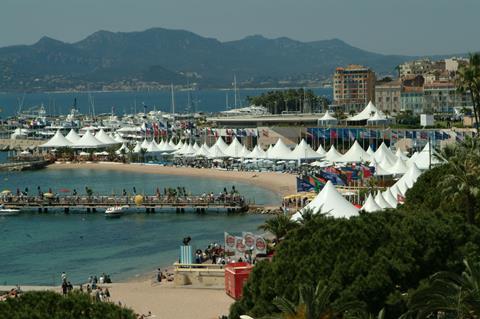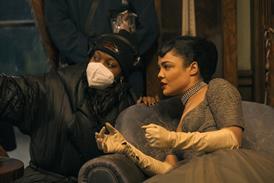
France’s Cinema Journalists Union (UJC) has issued a statement calling on the Cannes Film Festival to reinstate its former press screening schedule, under which accredited journalists were able to watch Competition titles ahead of their world premieres in the evening.
Under new screening rules introduced last year, press screenings for the 7pm gala screening in the main Lumière theatre took place simultaneously in the neighbouring Debussy and Bazin theatres; while press screenings for the 10pm gala screening were delayed until the following day at 8.30am.
The UJC called on Cannes to reintroduce the old system in return for accredited journalists signing a blanket social media and publication embargo.
It said “positive experiences at Venice and Berlin”, where the accredited press can watch a competition film prior to its world premiere under strict embargo, had shown that such as a system could be successfully implemented to keep the press response to a film under wraps until after its official premiere.
“The Cinema Journalists Union asks the Cannes Film Festival to return to the press screening schedule which allowed journalists and critics to see the films in a timely way. This allows journalists, especially those working for the written press, enough time to do their work, especially those working for international titles,” read the UJC statement.
“The Cinema Journalists Union proposes that in return for the re-establishment of the traditional press screening schedule, journalists sign an agreement on receiving their accreditation that they will adhere to an absolute publication embargo until the end of the gala screening, as is the case in Berlin and Venice,” the statement continued.
Any journalist breaking the embargo would have their accreditation removed, the union suggested.
When it announced the schedule change last year, Cannes said it was in response to “digital technologies” and the rise of the social media rumour mill, which sometimes meant a film’s fate was already decided before the director and cast hit the red carpet under the old system.
The festival said it wanted Cannes Competition premieres to be real premieres, where the film was truly being screened in front of an audience for the first time.
The move was applauded by many producers, filmmakers and some sales agents but received a mooted response from accredited press attendees and film press attachés.
Contacted by Screen for a comment on the UJC statement, Cannes said simply that it had not yet been contacted directly by the union on the subject of the press screening schedule.
Created in 2001, the UJC has some 60 cinema journalist members including Jean-Michel Frodon, Laurent Delmas, Barbara Lorey de Lacharrière and Magali Van Reeth.
“The schedule makes for terrible working conditions for the accredited press at the festival, especially those working for the written press,” commented UJC vice-president Philippe J. Maarek.
“I’ve just got back from the Berlinale where the embargo system worked perfectly, everybody respects it and they know that if they don’t their accreditation will be revoked,” he added.
He said the union would be calling on other film journalists and critics syndicates to join their call for a schedule change.
The idea of an embargo is not a new one. A number of critics, including Screen’s chief critic Fionnuala Halligan, advocated the introduction of an embargo when the Cannes schedule changes were announced last year.
Both Berlin and Venice have maintained press screenings ahead of the evening red carpet premieres, with the latter tweaking its rules last year to fall into line with Berlin.























No comments yet